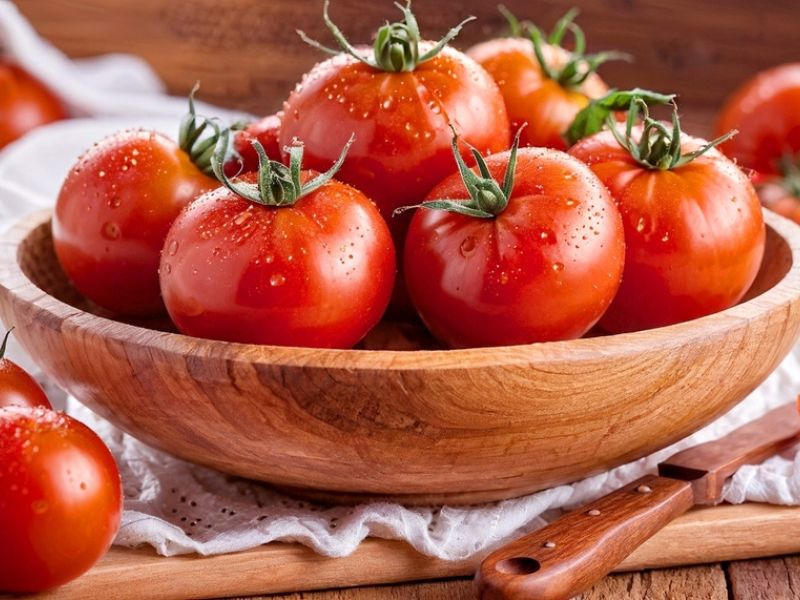What is the real problem with tomatoes? There is a myth that eating too many tomatoes causes inflammation in the body, which can worsen arthritis symptoms. Is it wise to stop eating vegetables if you have arthritis?
Arthritis is a degenerative and inflammatory disease of the joints that causes discomfort like stiffness, swelling, and reduced mobility.
Melinda Ring, MD, an integrative medicine physician, said, “There isn’t a cure for arthritis, but diet can play a major role in mitigating inflammation and managing symptoms.”
She said, “Dietary foods can trigger inflammation in the body. Even though your diet won’t solve all arthritis problems, it can make a difference.”

Image Credit: Shutterstock/Sabbir Digital
Inflammation And Tomatoes: Is There A Link?
Dr. Ring said, “There is minimal scientific data that supports the elimination of tomatoes, or nightshades, by looking at inflammation markers or symptoms.”
So, why are tomatoes so rotten? Nightshades are a family of plants that produce a toxin called solanine, which is thought to cause inflammation and joint pain. They aren’t related scientifically or medically.
Your body might signal to scale back your intake if arthritis symptoms disappear after removing nightshades. A food-induced reaction to arthritis is cause for concern, but if it occurs immediately or you experience severe symptoms, consult your doctor.
Does Arthritis Affect Your Diet?
According to Ring, foods that cause inflammation, such as sugar, processed foods, alcohol, charred foods, meats, additives, and gluten, should be avoided.
There is no one cure-all eating plan, as some foods cause inflammation and others don’t. Dr. Ring stresses the importance of a “plant-forward” Mediterranean diet that emphasizes whole foods instead of processed foods.

Image Credit: Shutterstock/Sunlight_s
What Can Manage Arthritis?
Eat a plant-rich diet: Dr. Ring explains that a plant-forward, whole-food diet can reduce arthritis symptoms without being vegan.
Lifestyle plays a huge role in our lives: Things get hectic but don’t overdo it. Dr. Ring said, “Sleep and stress management are also crucial for inflammation management.”
Be active. “Keep moving to whatever extent suits you,” says Dr. Ring. As Dr. Ring explains, movement strengthens the muscles surrounding joints. As well as helping to reduce pain in the short term, staying active is vital for long-term joint health.
Consult your physician. Find the right treatment plan with a primary care physician or rheumatologist.